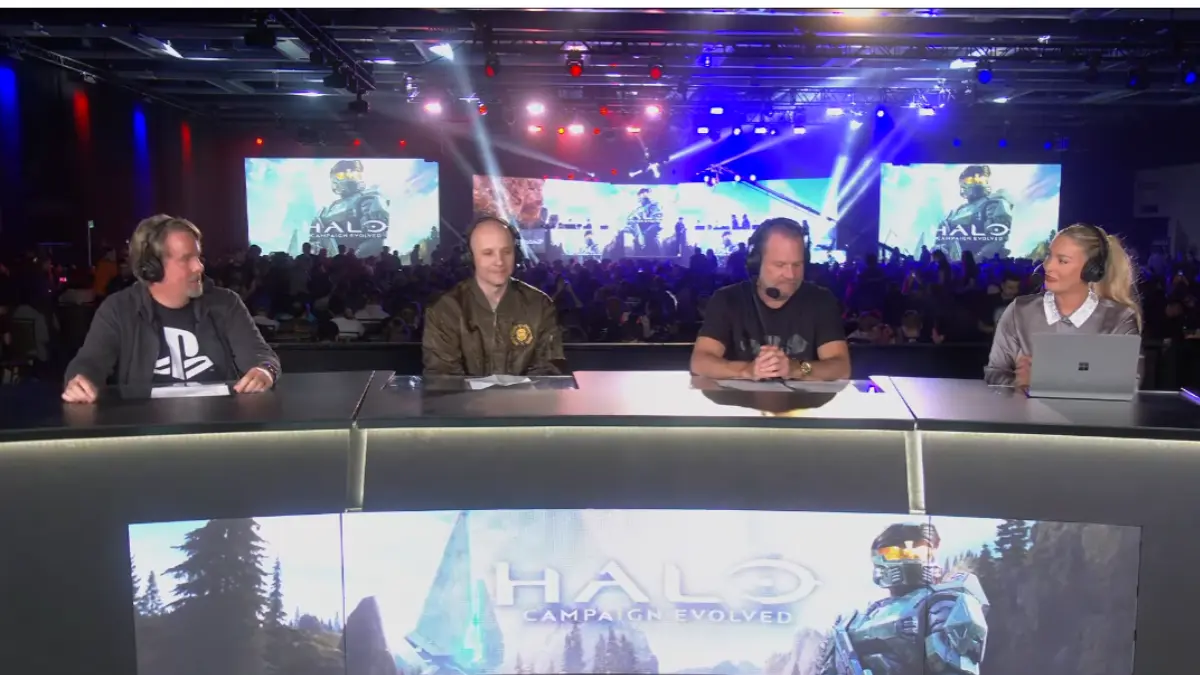Halo is officially breaking free from Xbox exclusivity. At a live presentation, Halo Studios, formerly 343 Industries, community director Brian Jarrad walked on stage wearing a PlayStation T-shirt and delivered a clear message: “Halo is on PlayStation going forward.”
The phrasing matters. This isn’t about a single port or legacy remaster. Microsoft is committing to bringing future Halo releases to Sony’s platform as part of an ongoing multiplatform strategy.
The on-stage wardrobe choice wasn’t subtle. The PlayStation shirt served as a visual exclamation point, signaling that Halo content will be native on Sony hardware rather than locked to Xbox consoles and PC.
For a franchise that launched alongside the original Xbox in 2001 and defined Microsoft’s console identity for two decades, this marks a seismic shift. Master Chief has been Xbox’s mascot, and Halo games have historically driven console sales for Microsoft.
Specific details remain sparse. The presentation didn’t confirm which Halo titles will arrive first on PlayStation, whether that’s a remaster of Combat Evolved, The Master Chief Collection, Halo Infinite, or something else entirely. No release windows were announced.
Technical questions also went unanswered. Players don’t yet know how cross-play and cross-progression will function, whether PlayStation versions will support DualSense features, or if multiplayer updates will arrive simultaneously across platforms.
This announcement fits Microsoft’s broader pivot toward software reach over hardware exclusivity. In 2024, the company brought several Xbox Game Studios titles to PlayStation and Nintendo platforms, including Hi-Fi Rush, Pentiment, and Sea of Thieves.
After acquiring Activision Blizzard, Microsoft committed to keeping Call of Duty on PlayStation for years. Minecraft has thrived across all platforms under Microsoft ownership. The strategy prioritizes player base growth and recurring revenue over console wars.
The move ends an era where Halo functioned as a primary reason to buy an Xbox. For Microsoft, the calculation appears straightforward: more players across more platforms means more revenue from battle passes, cosmetics, and DLC.
What happens to Xbox now
The announcement raises obvious questions about Xbox hardware’s value proposition. If Halo, Gears of War, and other Microsoft franchises go multiplatform, the traditional argument for owning an Xbox console weakens considerably.
Microsoft seems willing to accept that trade-off. The company’s focus has shifted toward Game Pass subscriptions, cloud gaming, and day-one PC releases. Xbox consoles are becoming one option among many to access Microsoft’s gaming ecosystem rather than the only option.

